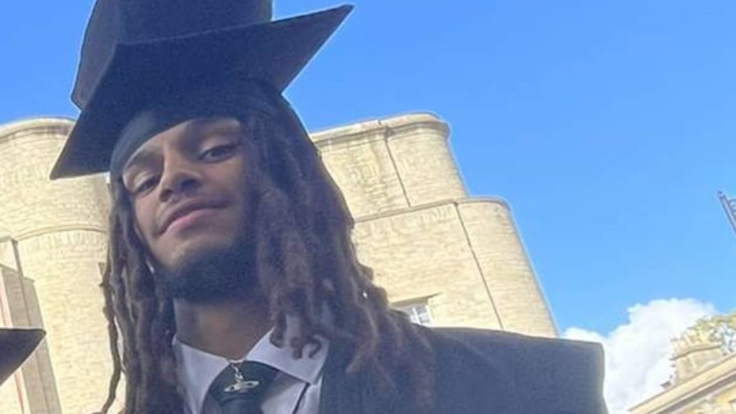Digital Outrage, Real Consequences: How a WhatsApp Chat Rocked the Oxford Union

The Oxford Union, the famed centuries-old bastion of free speech and intellectual debate, is facing a modern crisis of leadership.
On Saturday, members voted in a no-confidence ballot against president-elect George Abaraonye, after private WhatsApp messages surfaced in which he appeared to celebrate the fatal shooting of US conservative commentator Charlie Kirk.
The vote, with results expected on Sunday, took place under heightened scrutiny, as the Union permitted both in-person and proxy ballots. The procedural flexibility underscored how a disciplinary issue had evolved into a public referendum on the institution's core values.
The Leak That Sparked Outrage
The controversy began when The Times published screenshots of WhatsApp messages allegedly sent by Abaraonye following the September shooting of Charlie Kirk, a prominent Donald Trump ally, at a Utah university.
In the messages, the president-elect reportedly wrote: 'Charlie Kirk got shot, let's f****** go,' and 'Charlie Kirk got shot loool.' What might once have been a private, regrettable exchange has now become a full-blown institutional scandal.
The episode highlights a broader generational question: how far should impulsive digital speech determine a person's fitness for leadership?
🚨NOTICE OF POLL🚨
— Oxford Union (@OxfordUnion) October 17, 2025
All members can vote (in person or by proxy) in the Poll of No Confidence in the President-Elect, George Abaraonye.
Ballot Question:
“Should George Abaraonye, President-Elect, be removed as an Officer of the Society?”
Mark: YES or NO.
1. You can vote… pic.twitter.com/zpZnphJ5xN
Further Revelations Deepen the Fallout
The New York Post reported additional leaked messages in which Abaraonye allegedly endorsed claims that Queen Elizabeth II had caused 'genocide and famine', admitted he ran for Union president out of 'hate', and made inflammatory remarks about 'white establishments' and the French.
The disclosures triggered anger among alumni, some of whom reportedly travelled from overseas to cast their votes, reigniting debate over the Union's culture and governance.
The Oxford Union, whose former members include Boris Johnson and Tony Blair, condemned Abaraonye's comments and confirmed that complaints had been referred to disciplinary proceedings.
Free Speech, Accountability and the Digital Age
In a series of Instagram posts, Abaraonye framed the backlash as a test of the Union's values, stating that he had submitted a motion of no confidence in himself to demonstrate 'true accountability'.
He argued that the issue was no longer about personal behaviour but about whether the Union could remain a space where 'students can make mistakes, apologise sincerely, and learn from them'.
At the same time, he said he had received violent, racist and class-based threats, blaming 'bad-faith actors' who had 'twisted' his words to fit a predetermined narrative.
The Unforgiving Digital Archive
The scandal has exposed how student politics now unfolds under constant public scrutiny. The Oxford Union's predicament reflects the challenge facing many modern institutions: how to defend free expression in an era when every comment can be captured, circulated and weaponised.
The no-confidence vote in George Abaraonye, regardless of its outcome, signifies more than a leadership dispute. It is a case study in how private speech, once confined to conversation, now endures in a digital archive where the line between personal expression and public responsibility has all but disappeared.
© Copyright IBTimes 2025. All rights reserved.




















